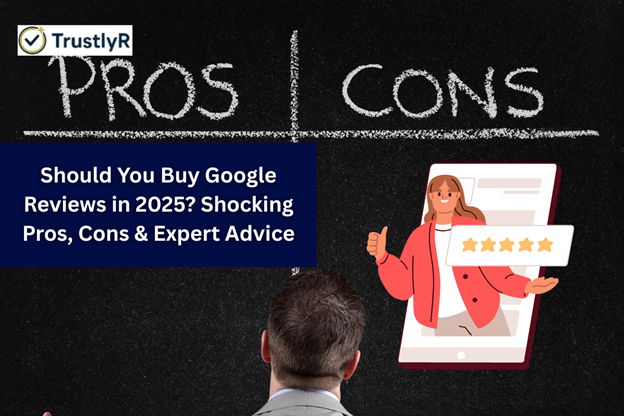
In today’s digital marketplace, customer reviews are the lifeblood of business visibility and reputation. Whether you own a local café or run a growing e-commerce store, potential customers often make decisions based on ratings and feedback. This is why many companies consider shortcuts like buy Google reviews to build credibility quickly. But is this strategy worth it in 2025? Let’s break down the shocking pros, cons, and expert advice every business owner should know.
The Temptation of Buying Google Reviews
The main appeal of buying reviews lies in speed. Building an authentic base of feedback takes time, but with a few clicks, businesses can instantly fill their profiles with Google 5 star reviews.
For small businesses facing heavy competition, this shortcut seems like a lifeline. A stronger online reputation can drive traffic, improve local SEO rankings, and even attract more sales within days.
The Pros of Buying Google 5 Star Reviews
One major benefit is credibility. Customers are more likely to trust a business with many positive reviews compared to one with none. For startups, buying reviews creates the illusion of an established reputation.
Another advantage is the SEO boost. Positive feedback signals trustworthiness to Google’s algorithm, helping your business rise in local search rankings. This can lead to more organic clicks and long-term visibility.
The Cons of Buying Reviews
Despite the benefits, there are serious downsides. Google actively monitors for suspicious review patterns, and purchased reviews can be flagged or deleted. In severe cases, entire business listings may be suspended.
There’s also the customer trust issue. Many buyers can spot fake reviews, especially if they look generic or overly positive. Once detected, credibility can be damaged beyond repair, costing more than the initial investment.
How TrustlyR Changes the Game
One platform often mentioned in discussions is TrustlyR, which provides structured packages of purchased reviews. They space out delivery, use varied accounts, and craft natural-sounding feedback.
While TrustlyR reduces risk, it doesn’t eliminate it. Google’s AI-driven systems are constantly evolving, meaning even carefully purchased reviews can still be flagged if patterns appear suspicious.
Expert Advice: When Buying Reviews Makes Sense
Industry experts suggest that if you do purchase Google reviews, it should never be your only strategy. Mixing purchased reviews with genuine customer feedback creates a more authentic appearance.
Experts also stress the importance of gradual growth. Sudden review spikes look unnatural and raise red flags. A consistent flow of reviews both real and purchased blends more seamlessly into Google’s algorithm.
Alternatives to Buying Google Reviews
Instead of relying solely on purchased feedback, businesses can build reputation organically. Email follow-ups, loyalty rewards, and QR codes at checkout are simple ways to encourage customers to leave reviews.
Reputation management tools can also automate review requests and monitor customer feedback. These methods may take longer, but they offer sustainability without the risks tied to fake reviews.
Legal and Ethical Concerns of Purchased Reviews
Buying reviews isn’t just risky for SEO it can also cross legal lines. Consumer protection agencies in several countries prohibit deceptive review practices, which can lead to fines.
From an ethical perspective, fake reviews mislead customers and undermine fair competition. Small businesses that rely too heavily on this tactic may lose community trust and face backlash.
The Future of Reviews in 2025
As Google’s detection systems grow more advanced, relying solely on purchased reviews will become increasingly dangerous. AI tools are designed to identify and remove inauthentic patterns.
The businesses that thrive in 2025 will focus on balance combining excellent service and genuine engagement with smart, strategic reputation management. Purchased reviews may offer a quick boost, but authenticity ensures long-term survival.
Conclusion
So, should you buy reviews in 2025? The answer is nuanced. While there are pros like immediate credibility and SEO benefits the cons can outweigh them if done carelessly.
The smartest approach is moderation. Platforms like TrustlyR can reduce risks, but the safest strategy is blending authentic reviews with strategic reputation-building. In the long run, trust and transparency remain the ultimate keys to success.


